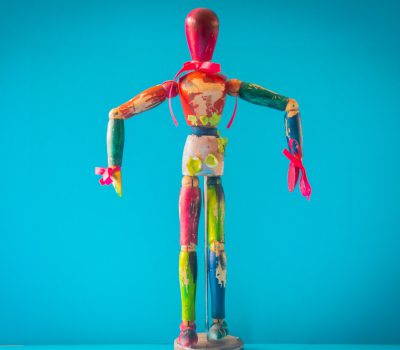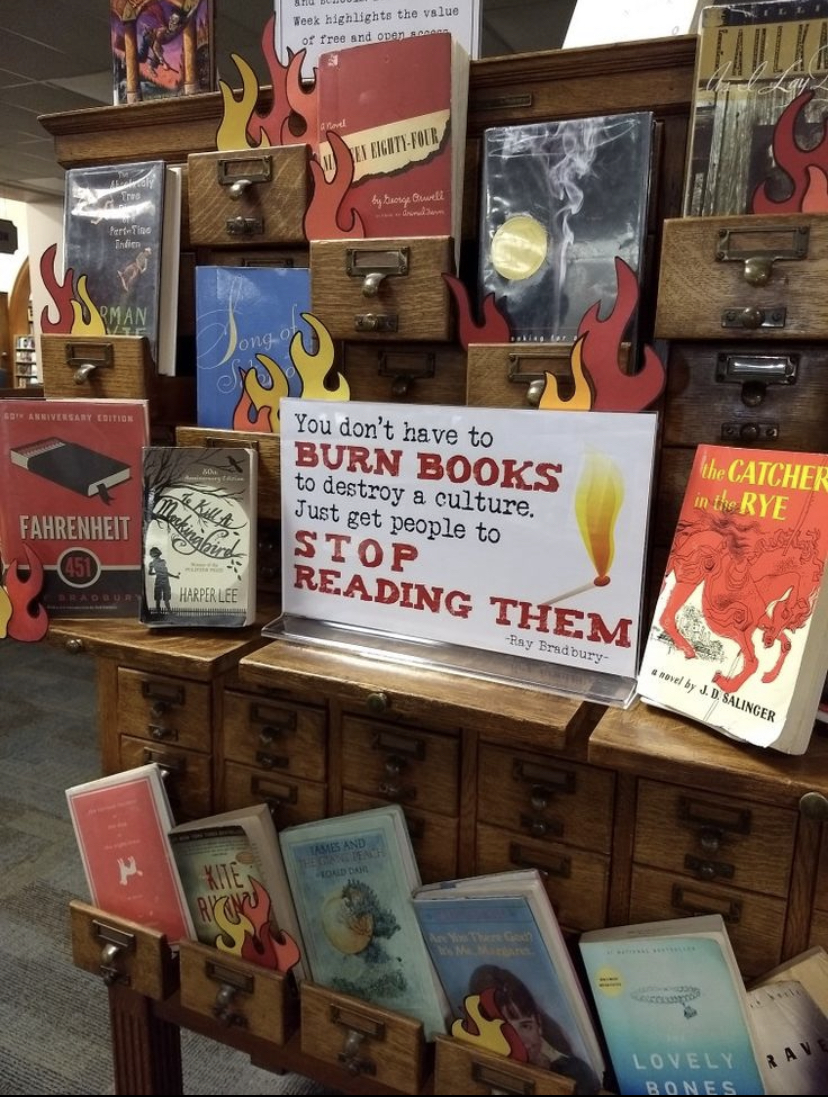

As teachers, many of us love World Book Day. It has always been one of my favourite days in school, but lately, I’ve been more and more interested in Banned Books Week. Banned Books Week began in 1982 in response to an uptick in ‘challenges’ (attempts to ban) books from schools, libraries and shops. While censorship is becoming a significant problem in America, the U.K. is not immune with recent cases such as a gay author being banned from delivering a book talk to a religious right organisation and petitioning Waterstones to ban certain books.
If you want to increase engagement in reading. Banned Books Week is a great week to observe as young people find the idea of reading banned material rebellious and fun. But there is a serious point to Banned Books Week. Marginalised authors experience more censorship and marginalised young people are then prevented from seeing themselves represented in literature. Furthermore, it is often surprising to learn the true reasons why people request certain books to be banned.

So to celebrate Banned Books Week 2023, here are 10 frequently banned books, for a range of ages and stages…
The Moon Within
The Moon Within by Aida Salazar is a beautiful, stigma-challenging and period-positive book. In 2021 the author tweeted “You guessed right, THE MOON WITHIN is on Texas’ list of books about race, class, sex, etc., they want to ban. And so is its Spanish translation.” She added later in the thread “it’s like they are offended by anyone being human”.
The protagonist of the book is Celi, a girl on the cusp of starting her menstrual cycle. Her mother wants to embrace their culture and celebrate her first period with a menarche ceremony. Celi is not convinced.
“She tells me that our indigenous ancestors were in tune with natural cycles held our bleeding to be powerful. And that during our moon time women gathered in special huts to nurture, create, and be in sacred space with their cycle. It is my birthright, she insists to honor my cycle in this same way so that when my moon comes I will be ready and proud to share it with our community.”
A beautiful and empowering book that I wish all young people could read.
The Diary of Anne Frank
A book that most people will be familiar with, Anne’s diary is one of the most banned books in the world. With online conspiracies and unscrupulous platforms amplifying antisemitism, this powerful Holocaust testimony is becoming more important than ever before. You would expect that the reasons given for banning this book may be because the Holocaust is a harrowing part of history. Shockingly, this book is often challenged because Anne writes openly about her experiences of puberty and makes a few entries about having crushes on girls.
Maus
Maus by Art Spiegleman, is a graphic novel detailing his father’s experiences in a concentration camp. I found Maus very moving. Secondary colleagues have told me they’ve seen some very reluctant readers devouring Maus. Maus was the first graphic novel to win a Pulitzer Prize and opened up Holocaust education to a new audience thanks to the accessibility of the novel. In Maus, the Jews are depicted as mice and the Germans as cats. Why was this important holocaust testimony banned? A bad word and a naked mouse…
Melissa
This novel by Alex Gino was first released under the title, ‘George’. ‘When people see George, they think they see a boy, but George knows she is a girl’. This is the story of a young person who has always known that she is a girl and along with a supportive friend, is learning to be herself. Gino listened to fans of their book who felt the book title should be Melissa and not the character’s dead name. The book was rereleased as Melissa and has been one of the world’s most banned books in recent years despite it depicting only empathy and understanding.
And Tango Makes Three
A lovely book based on the true story of two male penguins in Central Park Zoo who had coupled up, as penguins do (and usually or life!). The zoo keepers gave the boys an abandoned egg which they diligently raised and cared for. Their chick, Tango is the first chick in the zoo to have two daddies. This is one of the world’s most banned and challenged books in recent years.
The Handmaid’s Tale
Margaret Atwood’s ‘The Handmaid’s Tale” has been made into a successful TV series and imagines a world where a fertility crisis and a religious regime have made women into property of the state. The Handmaids are forced to be breeding vessels for higher-ranking couples. When writing this novel, Atwood gave herself one rule – to only depict things that had been done to women in real life. Much is based on Decree 770 in communist Romania where women were under medical surveillance every month and abortion was banned in almost all circumstances. This book deals with issues such as sexual abuse and will always be a book that can be used with older age groups. However, there are frequent attempts to ban the book from schools, not because of the sensitive subject matter but because of profanity and because some fringe groups consider it anti-Christian and anti-men.
The Kite Runner
This book by Khaled Hosseini, is about a young boy in Kabul while the city is under Taliban occupation. Though not a true story, much of the book is based on real events and set when Afghanistan was on the brink of war. The book is moving, harrowing and depicts child sex abuse. However, the reason for banning this book is often due to positive depictions of Muslims and concerns that it will ‘promote Islam’.
The Goosebumps Series
The famous series of horror novels by RL Stein. There have been many challenges to this series of books by people who think they are too frightening. As a child, I loved the Goosebumps books and have often had them on my school bookshelf. They are age-appropriate horror genre books. Stein is, in my opinion, a genius who understands exactly how to write for a young audience. I have often explained to classes that Goosebumps are real horror, they are scary, but they are also appropriate for children and that just like adults, some of them will enjoy the genre and some will not. Simply don’t read them if you don’t enjoy scary stories. I find the books are often very popular and ignite a love of reading without exposing children to the inappropriate themes of adult horror.
The Day the Crayons Quit
A well-known children’s picture book where a boy wants to colour in but gets letters from each crayon telling him they have quit and why. Themes such as understanding someone else’s feelings and thinking outside the box in creative work but really just a fun and engaging story. The book has been banned in some schools because the peach crayon asks why he’s pulled off the paper wrapping leaving it ‘naked’…
Unpregnant
Unpregnant is a YA novel about a high-achieving student who finds herself pregnant and needs to go on a road trip to another state to get an abortion. Unsurprisingly, this book is commonly banned. The novel is amusing in places yet allows valuable discussion of important themes that can blight girls’ lives such as stealthing, unwanted pregnancy and a lack of support in their reproductive choices.